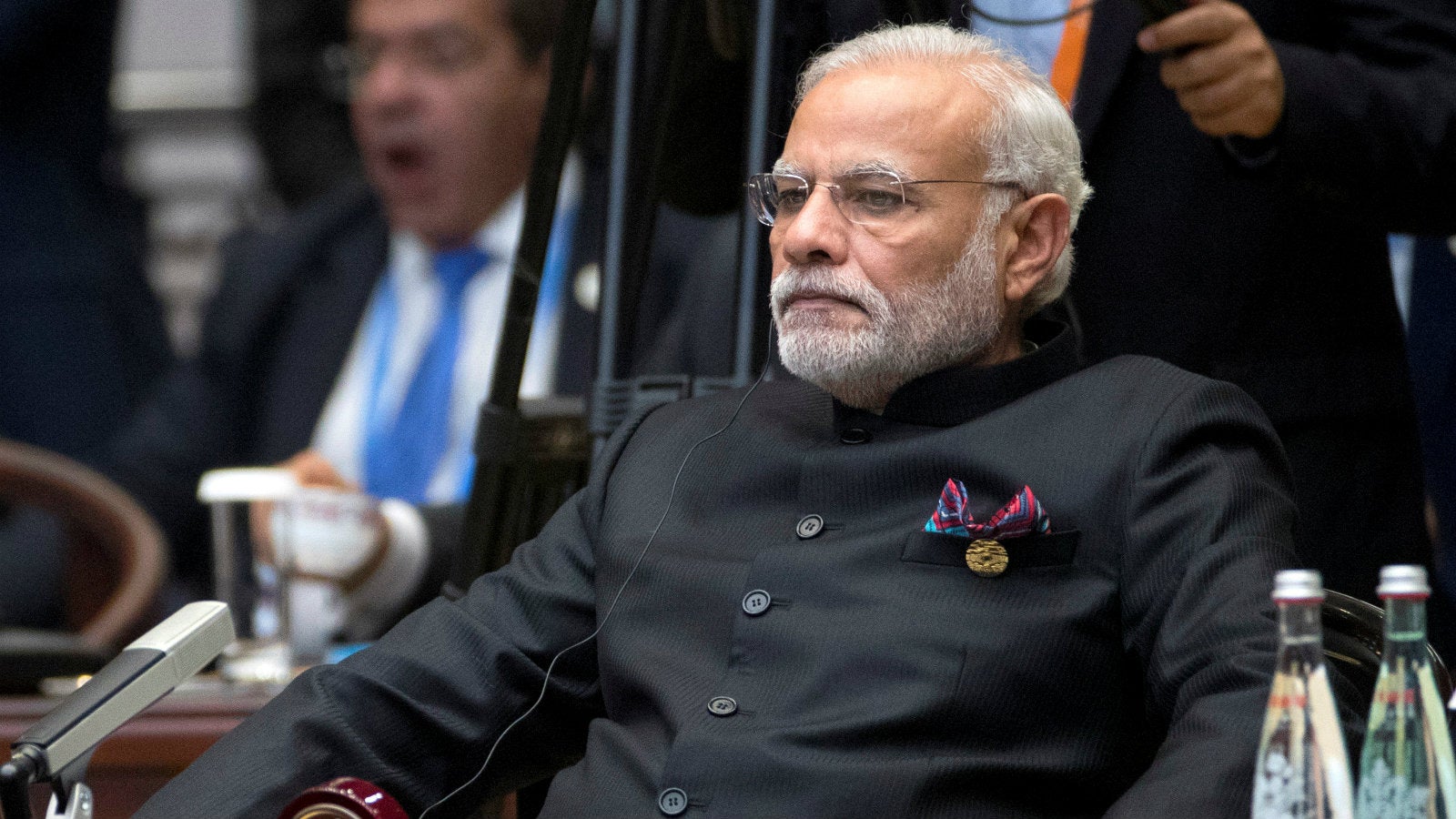The tables have turned: India’s internet trolls are now mocking Narendra Modi
Narendra Modi has been ensnared in a trap of his own making.


Narendra Modi has been ensnared in a trap of his own making.
For the past two years on social media, supporters of Modi and his Bharatiya Janata Party (BJP) have been unsparing in their aggression against those who have even mildly criticised the Indian prime minister. From politicians to Bollywood celebrities, many have faced the wrath of these right-wing trolls, including much abuse and threats of violence and even rape.
The tables have now turned, and the prime minister—who has said little to rein in his unruly online backers—has come under severe attack. Even his own supporters are criticising him for the government’s inaction after a terror attack in Kashmir over the weekend.
#WakeUpModi has been the top trend on Twitter for several hours on Sept. 20:
On Sept. 18, four terrorists from Pakistan sneaked into an Army base near Uri in Kashmir and killed 18 soldiers during an intense three-hour gun battle.
The Modi government, which had promised strong action against Pakistan on the terrorism issue during its election campaign in 2014, has come under fire for not taking adequately aggressive steps against the neighbouring country.
Security experts have pointed out that there is little that India can do right now. “…Any Indian plan that would adequately punish Pakistan would also cross the Red Line of Pakistan’s nuclear threshold,” the Business Standard newspaper reported on Sept. 19.
For all the social media criticism, Modi remains widely popular. Even after two years in power, almost 81% of the respondents in a recent Pew Research survey of 2,464 people held a “favourable” view of Modi, including 57% who held a “very favourable” opinion.
Nonetheless, the widening gap between Modi’s words and his actions is rubbing many the wrong way.